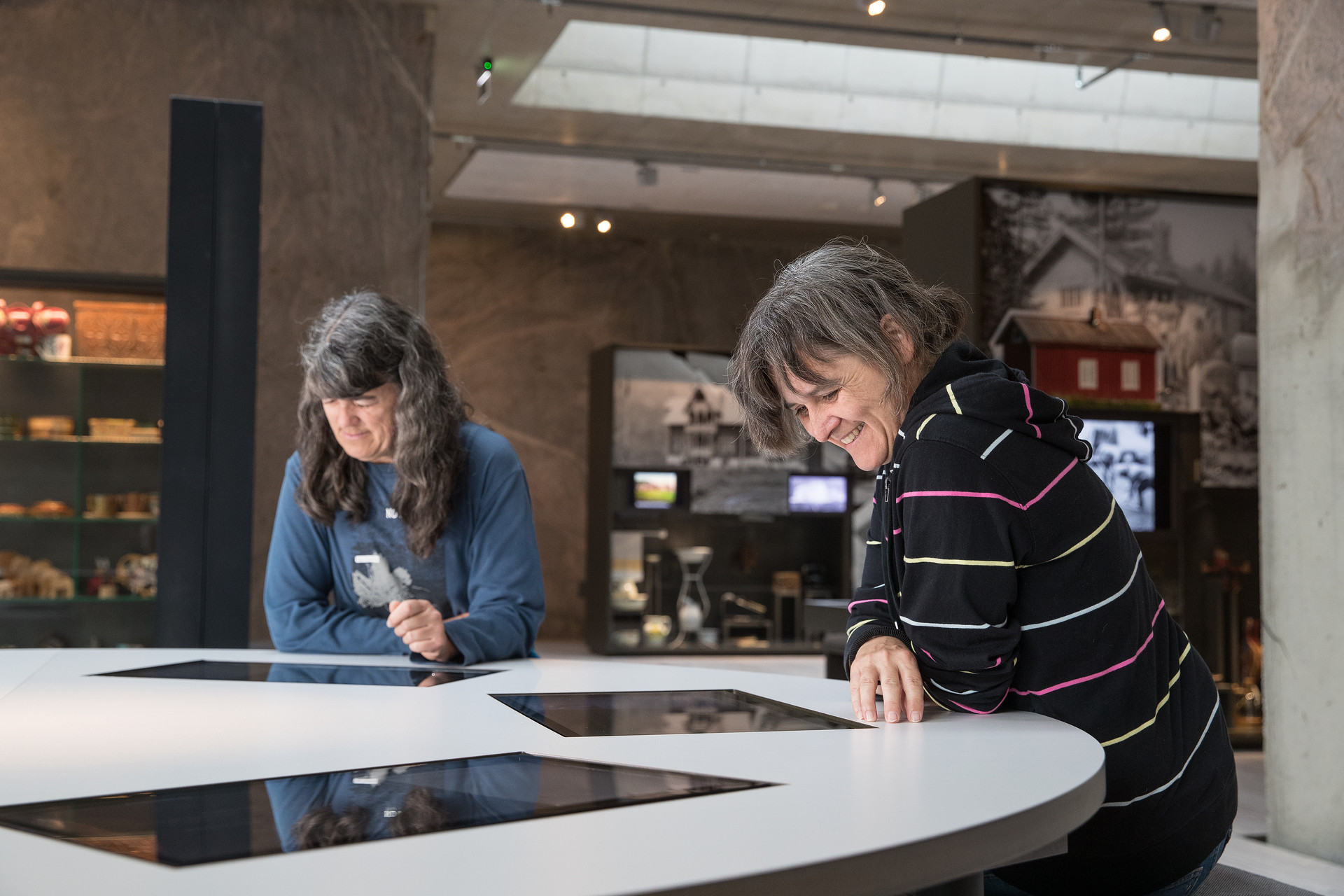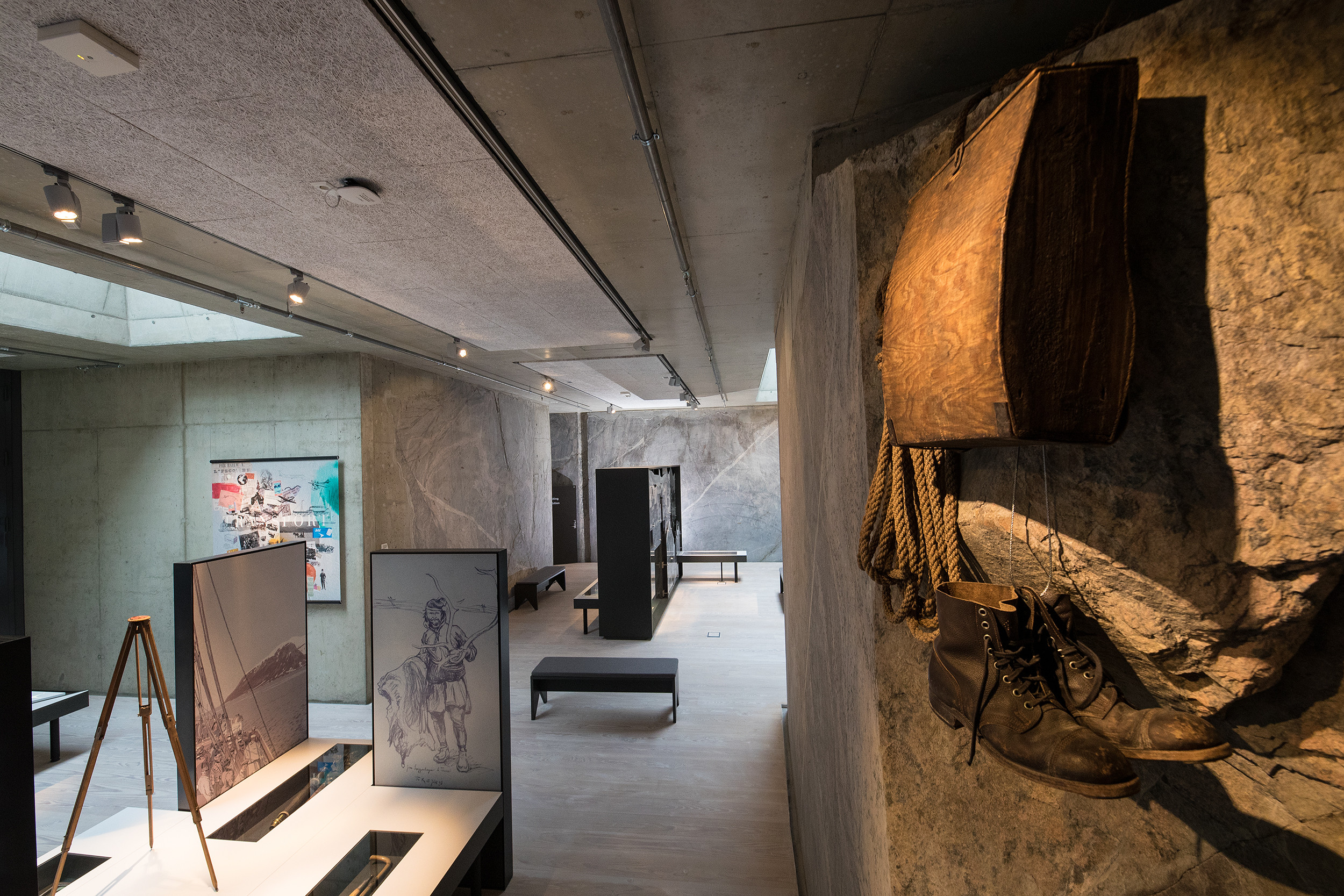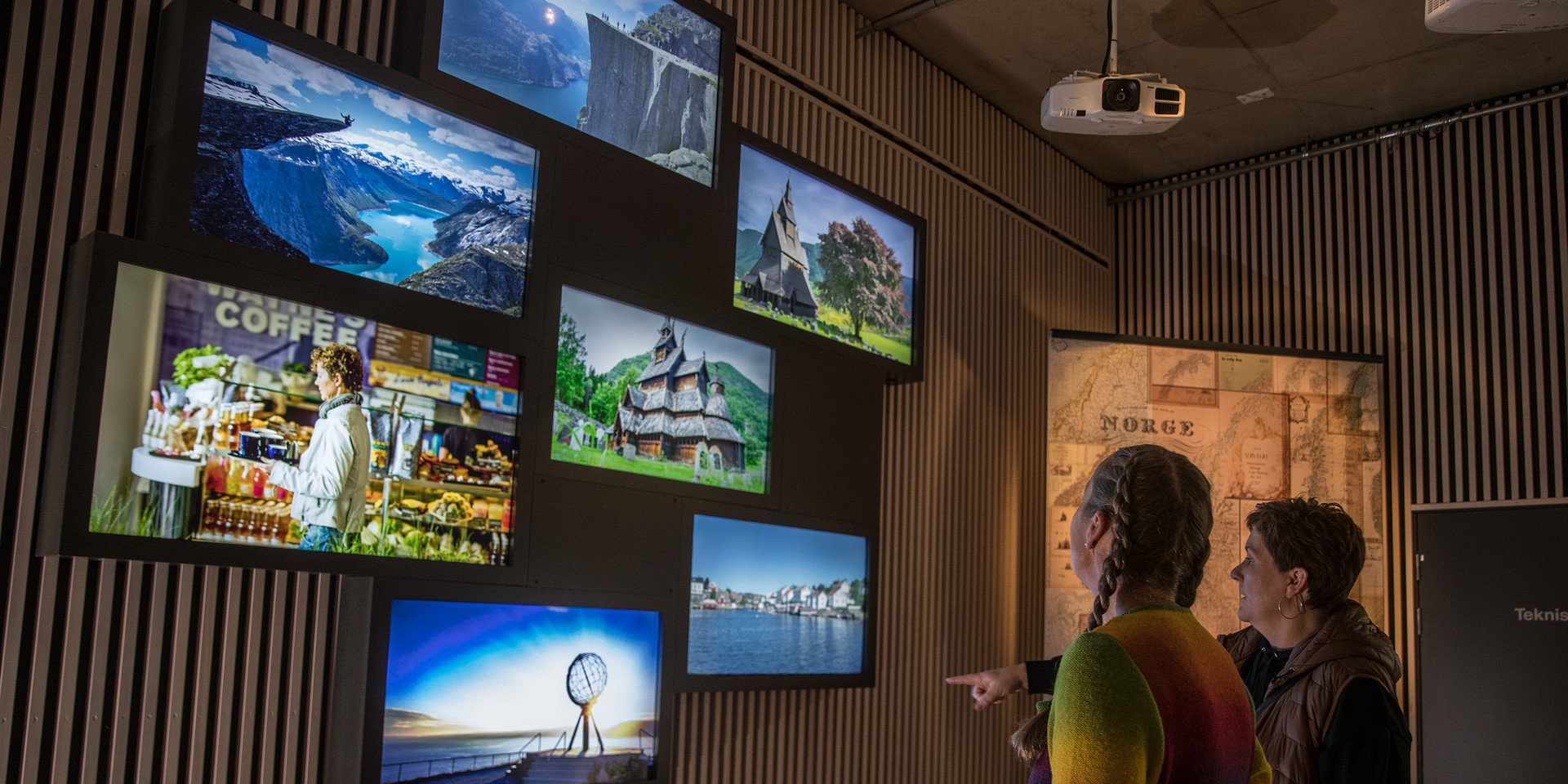All photos: Thomas Bickhardt/Bickfoto
In our main exhibition, Norwegian Tourism, emphasis is placed on showing the historical development of modern tourism in Norway, from the early 1800s to the present day.
The country was “discovered” in the years following 1814, when Norway got its own constitution. Artists, painters and geologists were the first to discover the areas outside the major cities. The country was eventually viewed as a place for recreation among untamed and beautiful landscapes, or somewhere one could face wild mountains or raging river rapids.
Steamships, railways – and eventually roads – made the country increasingly accessible, and Norway was considered an exotic destination by foreigners. Until the early 1900s, however, only a very small portion of the population had the time and money to travel. After the First World War, and especially after the Second, most people had both higher wages and more free time, with vacation legislation allowing many more to become part of the growing tourism trend. In the last 60-70 years, tourism has exploded and developed into a global industry. These days, all segments of the population travel, and the tourism industry remains important in Norway.

Even after a pandemic that put an abrupt stop to all tourism, it is still considered an important employment sector for Norwegian municipalities. The tourism industry contributed NOK 130 billion to the economy in 2019, and experienced strong growth in the years preceding the pandemic, both in Norway and internationally. Menon Economics expects Norwegian tourism to return to pre-pandemic levels by 2025. At the same time, tourism leaves significant environmental footprints.
Travelling
Why do we travel? – because we want to, because it’s enjoyable, because we can. The coronavirus pandemic served as a reminder of the risks of crowding together. After two years of refraining from travelling, it will be interesting to see if travel patterns change; fewer and longer journeys to “safe” destinations off the beaten track or just jump on the first and best available deal?

Travelling 150 years ago was completely different than travelling today. Not everyone has equally clear goals when travelling, but most people know what they wish to experience. Thomas Cook founded what is considered the world’s first travel agency in Leicester in 1841. Travel agencies and travel operators focus on making convenient package deals for travellers. However, more and more people now prefer planning their own trips, as most of the information can be found, and tickets booked, online.
